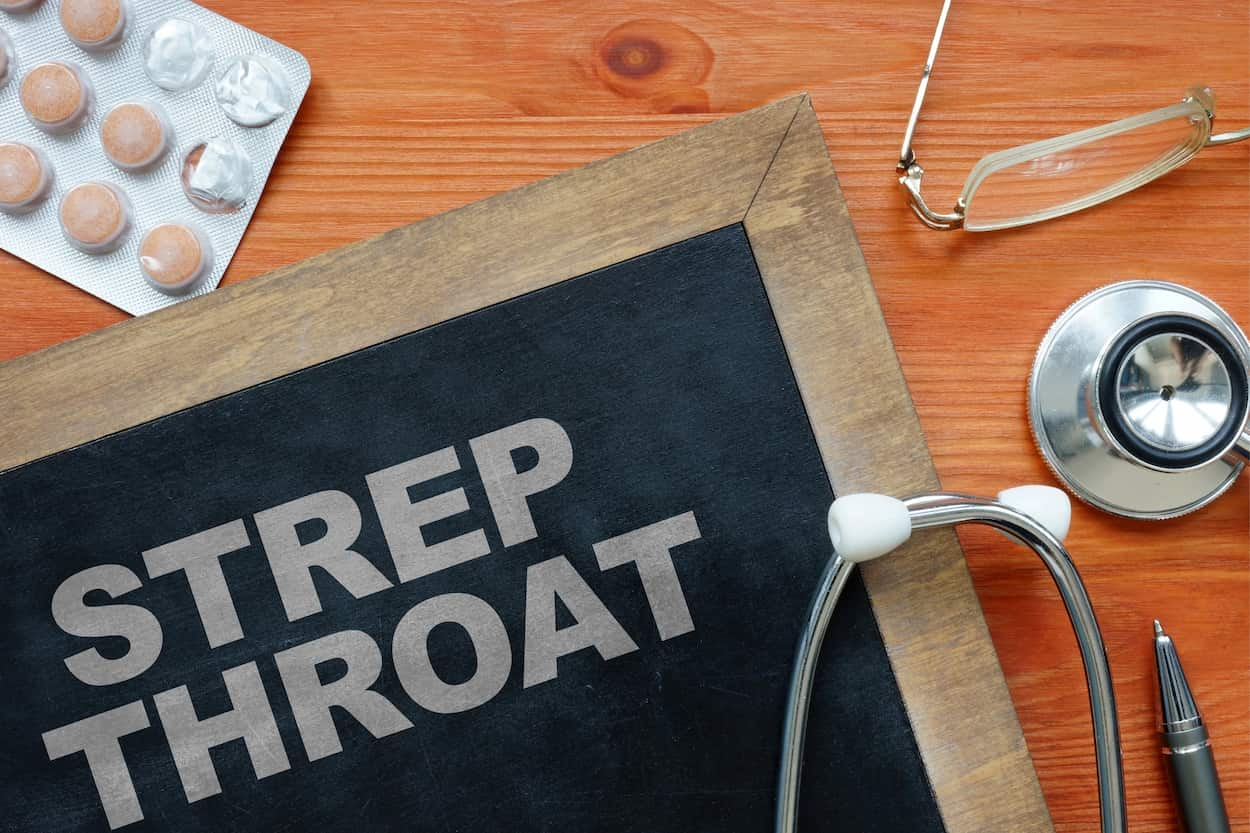
Strep Throat: Understanding the Causes and Symptoms
Strep throat is a common bacterial infection that affects the throat and tonsils, and it is caused by Group A Streptococcus bacteria. While it can affect people of all ages, it is more commonly seen in children and teenagers. The infection is highly contagious and can easily spread through respiratory droplets and contact with infected surfaces.
In this article, we will explore the causes, symptoms, and diagnosis of strep throat, as well as how to get rid of it and prevent its spread. By understanding the basics of strep throat, you can take steps to protect yourself and others from this common infection.
What Is Strep Throat?
Strep throat is a bacterial infection that affects the throat and tonsils, and it is caused by Group A Streptococcus bacteria. This type of bacteria can live in the nose and throat of an infected person and can spread easily through respiratory droplets when the person coughs or sneezes. Strep throat can affect people of all ages, but it is more commonly seen in children and teenagers.
Strep throat is different from the common cold or flu because it is caused by bacteria rather than a virus. While strep throat is usually a mild infection, it can lead to more serious complications if left untreated, such as rheumatic fever, kidney inflammation, or scarlet fever. Therefore, it is important to seek medical attention if you suspect that you or someone you know has strep throat.
What Are the Symptoms Of Strep Throat?
The symptoms of strep throat can vary from person to person, but the most common symptoms include:
Sore throat: A sore throat is usually the first symptom of strep throat. It can be very painful, especially when swallowing.
Difficulty swallowing: As the infection progresses, it may become difficult to swallow, and you may feel like you have a lump in your throat.
Fever: A fever is a common symptom of strep throat and can range from mild to high.
Headache: You may experience a headache, especially if you have a fever.
Fatigue: Strep throat can cause fatigue and weakness, which can make it difficult to go about your daily activities.
Swollen lymph nodes: Your lymph nodes, located in your neck, may become swollen and tender.
Red and swollen tonsils: Your tonsils may become red and swollen, and you may notice white or yellow spots on them.
Nausea and vomiting: Some people with strep throat may experience nausea and vomiting.
It is important to note that not all sore throats are caused by strep throat, and other illnesses such as the common cold or flu can cause similar symptoms. A doctor can perform a rapid strep test or a throat culture to confirm the presence of strep bacteria. If you suspect that you or someone you know has strep throat, it is important to seek medical attention as soon as possible.

Who Does Strep Throat Affect?
Strep throat can affect people of all ages, but it is more common among children and teenagers. According to the Centers for Disease Control and Prevention (CDC), strep throat is most common in children between the ages of 5 and 15 years old. However, adults can also get strep throat, especially if they are exposed to infected individuals or have weakened immune systems.
How Does Strep Throat Spread?
Strep throat is highly contagious and can easily spread from person to person through respiratory droplets. When an infected person coughs or sneezes, tiny droplets containing the bacteria are released into the air, and if another person inhales those droplets, they can become infected. The bacteria can also be spread by touching contaminated surfaces, such as doorknobs, toys, or utensils, and then touching your mouth or nose.
Strep throat is most common in children and teenagers because they are more likely to be in close contact with others at school or daycare. However, adults can also become infected, particularly if they work in close quarters with others or share living spaces with others who are infected.
It is important to note that not everyone who carries the bacteria will develop symptoms of strep throat. Some people can be carriers of Group A Streptococcus bacteria without ever getting sick, but they can still spread the bacteria to others who may develop symptoms. This is why it is important to practice good hygiene habits and take steps to prevent the spread of the bacteria.
Diagnosis and Treatment of Strep Throat
To diagnose strep throat, a doctor may perform a rapid strep test or a throat culture. The rapid strep test involves swabbing the back of the throat to check for the presence of Group A Streptococcus bacteria. Results are usually available within 15-20 minutes. If the rapid strep test is negative, a throat culture may be performed to confirm the diagnosis. In a throat culture, a swab is taken from the back of the throat and sent to a laboratory for analysis. Results are usually available within 1-2 days.
If a patient is diagnosed with strep throat, antibiotics are usually prescribed to treat the infection. Penicillin or amoxicillin are the most common antibiotics used to treat strep throat, and patients should take the full course of antibiotics as prescribed by their doctor. Over-the-counter pain relievers, such as acetaminophen or ibuprofen, can help alleviate symptoms such as fever and sore throat.
How to Get Rid of Strep Throat?
If you are diagnosed with strep throat, your doctor will likely prescribe antibiotics to help get rid of the infection. Antibiotics can help to kill the bacteria and reduce the duration and severity of symptoms. It is important to take the full course of antibiotics, even if you start feeling better before the medication is finished.
In addition to taking antibiotics, there are several other things you can do to help relieve symptoms and speed up recovery:
Rest: It is important to get plenty of rest to allow your body to recover from the infection.
Drink fluids: Staying hydrated is important, especially if you have a fever, to prevent dehydration.
Gargle with salt water: Gargling with warm salt water can help to soothe a sore throat and reduce inflammation.
Use over-the-counter pain relievers: Over-the-counter pain relievers, such as acetaminophen or ibuprofen, can help to reduce fever and relieve pain.
Use a humidifier: Using a humidifier can help to moisten the air and reduce irritation in the throat.
Avoid irritants: Avoiding smoking, exposure to secondhand smoke, and other irritants can help to reduce symptoms and speed up recovery.
It is important to note that if you do not see any improvement in symptoms after a few days of taking antibiotics, or if symptoms worsen, you should contact your doctor to discuss alternative treatments or further testing.
Preventing Strep Throat
The best way to prevent strep throat is to avoid close contact with infected individuals and practice good hygiene habits. This includes washing your hands regularly with soap and water, covering your mouth and nose when coughing or sneezing, and avoiding touching your face with unwashed hands.
It is also important to avoid sharing utensils, cups, or personal items with others, especially during cold and flu season. If you are diagnosed with strep throat, you should stay home from work or school until you have completed a full course of antibiotics and are no longer contagious.
In addition to these preventative measures, there are also some natural remedies that may help boost your immune system and prevent the spread of strep throat. For example, drinking warm liquids such as tea with honey and lemon or chicken soup can help soothe a sore throat and provide hydration.
Gargling with salt water may also help alleviate symptoms and prevent the spread of bacteria. It is important to note, however, that natural remedies should not replace medical treatment and should be used in addition to antibiotics prescribed by a doctor.
Understand Strep Throat with Healthy Türkiye
In conclusion, strep throat is a common bacterial infection that can affect people of all ages. It is highly contagious and can spread easily through respiratory droplets and contact with infected surfaces. Symptoms include sore throat, difficulty swallowing, fever, headache, and fatigue. To diagnose strep throat, a doctor may perform a rapid strep test or a throat culture, and antibiotics are usually prescribed to treat the infection.
The best way to prevent strep throat is to practice good hygiene habits, avoid close contact with infected individuals, and stay home from work or school if you are diagnosed with the infection. By following these guidelines, you can help protect yourself and others from the spread of strep throat.




